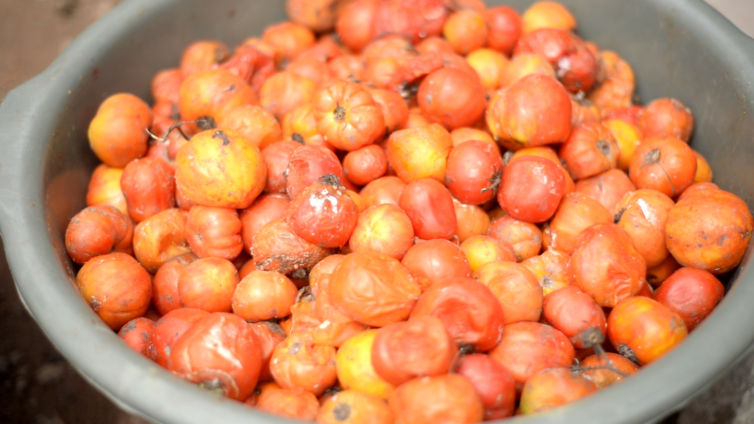Consumption of spoiled tomatoes is on the increase with more patronage by some commercial food operators in Ghana.
Spoiled tomatoes may have higher nutritional and healthful plant-based chemicals than fresh tomatoes but are highly contaminated with harmful microbes, thus not safe for consumption.
That is the conclusion of a study by the Kwame Nkrumah University of Science and Technology (KNUST), Kumasi, with sponsorship from the Foundation for Food and Agriculture Research and Rockefeller Foundation.
Consumption of tomatoes provides health benefits. However, they’re highly perishable due to their high moisture content, soft nature, postharvest handling and are highly prone to microbial contamination.
The study was undertaken to determine the nutritional and phytochemical compositions of fresh and spoiled tomatoes. In addition, the researchers also sought to determine the levels of microbial load in sampled tomatoes.
For the study, fresh tomatoes and spoiled tomatoes were obtained from different tomato sellers at Borla Market in Kumasi in the Ashanti region of Ghana and analysed.

The researchers found all the spoiled tomatoes had considerably higher levels of nutrients (crude fibre, higher potassium, and high folic acid) as compared to the fresh tomatoes except for moisture and vitamin C.
Again, higher levels of plant-based chemicals known as phytochemicals were found in the spoiled tomatoes, particularly lycopene, beta carotene and chlorogenic acid.
The researchers attribute the results to advance ripening and moisture loss in spoiled tomatoes.
“As ripening goes on, these phytonutrients are synthesized,” lead scientist Prof. Faustina Dufie Wireko-Manu of the KNUST Food Science and Technology said.
The researchers, however, warn spoiled tomatoes are highly contaminated with harmful microbes.
“We found the spoiled tomatoes were contaminated with molds, E Coli and other harmful bacteria, beyond recommended levels by Foods and Drugs Authority (FDA).
"They’re highly contaminated with microbes and therefore not safe for human consumption,” explained Prof. Faustina Dufie Wireko-Manu.
Latest Stories
-
You can’t direct Mahama on how to appoint ministers – Mahama Ayariga to Afenyo-Markin
14 minutes -
2024 electoral offences: OSP vows to probe and prosecute offenders
23 minutes -
We can raise revenue without increasing taxes – Ato Forson
29 minutes -
I will lead the charge in cutting wastage – Ato Forson
34 minutes -
I don’t need a siren as MP – John Dumelo
41 minutes -
NDA boss addresses allegations of missing motorbikes and procurement irregularities
44 minutes -
I only said we’ll seek additional IMF funds if need be – Finance Minister-designate
45 minutes -
Maintain Akwasi Agyeman as GTA boss – Austine Woode to Mahama
1 hour -
Protecting local businesses – a pillar for economic growth
1 hour -
Baseball: Golden Palms defend African title, secure Youth World Championship slot
1 hour -
Zenith Bank Ghana claims ‘Bank of the Year’ Honour at The Banker Awards
1 hour -
OSP completes probe into Police recruitment, Charles Bissue cases; outlines progress and challenges in Anti-Corruption fight
1 hour -
The future of work is here – why agile working will make or break your business in Ghana
1 hour -
T-bills: Government records 55% oversubscription; interest rates skyrocket
2 hours -
Stephen Appiah to join reconstituted Black Stars management committee, psychologist joins technical team
2 hours

